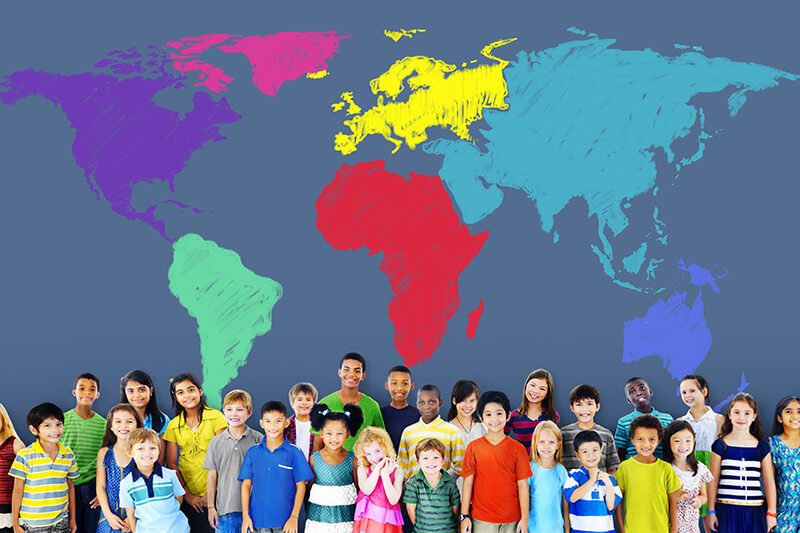-
![img]()
Daddy Talks: How I Use Sports to Reduce My Kids' Screen Time
Reginald Chan
April 06, 2025
2 min
This time, we're diving into the wild world of sports and their magical power to reduce screen time for kids.
If juggling spreadsheets and baby laundry wasn't enough, cutting down on digital distractions for my curious little ones presents a new speed bump—but one I'm eager to tackle head-on!
Over time, I've learned that the trick isn't to push away technology.
It's about finding a balance and turning screen time into an active, enjoyable adventure.
In my case, I’ve found my secret weapon—sports!
Why don’t you join me as I share my successes (and my rookie dad fails) on this invigorating journey?The Screen Time Struggle

As a work-from-home dad, it's no secret that technology often consumes my day.
It's a constant struggle to minimise my kids' screen time while staying connected.
The truth is, it's not all bad—it’s all about balance.
So, I'm always looking for solutions to keep them engaged without gadgets. Sports to the rescue!Choosing the Right Sports for My Kids
It all starts with finding sports that pique their curiosity and match their unique personalities.
With my daughter's love for dancing and my son's endless energy, we've embarked on a journey to discover their favourite activities—from piano for her to coding-related games for him.Playing Sports Together: Family Bonding

A family that plays together stays together, right?
Whether it's kicking around a soccer ball or having a lively game of badminton in the backyard, playing sports together is an excellent way to catch up, bond, and create lasting memories.Learning Life Skills Through Sports
Sports aren’t just about reducing screen time. They help us learn the rules of life!
Teamwork, discipline, focus, and resilience are some of the many values that sports cultivate in us.
Now, as a dad, I love watching my kids acquire these skills on the sports field.Encouraging Co-curricular Activities at School

Schools in Malaysia offer a variety of co-curricular activities.
So, we're taking full advantage of that!
Supporting my kids in joining sports teams or practising their favourite games ups their happiness while maintaining a healthy balance between tech and physical activity.Exploring Community Opportunities
Having a support system is crucial to my sports parenting journey.
Connecting with other parents at local sports clubs, organising neighbourhood games, and enrolling my kids in group classes have helped keep them motivated and excited about sports, reducing screen time considerably.The Gift of Sports: A Lifelong Journey
The perks don't stop here.
As my kids make their way through school, sports will continue to be an integral part of their lives—reducing their dependency on screens and fostering their growth into well-rounded individuals.
With the help of sports, we've turned a screen time battle into an opportunity for learning, bonding, and self-discovery.
So gear up and join the game; it's a beautiful adventure!
Disclaimer: The information provided in this article is for informational purposes only and should not be considered as medical advice from Motherhood. For any health-related concerns, it is advisable to consult with a qualified healthcare professional or medical practitioner.
For more insightful stories and fun recipes, stay tuned to Motherhood Story!
-
![img]()
The Significance of Children's Day: Celebrating the Rights and Wellbeing of Children
Zakwan Shah
November 20, 2023
4 min
Children's Day is an important international celebration dedicated to promoting the rights and wellbeing of children across the world. It serves as a reminder of the need to protect and nurture the youngest members of our society.The History of Children’s Day

Established in 1954, World Children's Day is observed on the 20th of November each year to foster global unity in promoting children’s welfare.
The 20th of November holds significant historical importance. In 1959, it was the date when the UN General Assembly adopted the Declaration of the Rights of the Child. In 1989, the UN General Assembly adopted the Convention on the Rights of the Child.
Since 1990, World Children's Day has become a symbolic anniversary.
World Children's Day is not confined to a particular group but involves a broad spectrum of individuals, from parents and educators to healthcare professionals, government leaders, civil society advocates, religious and community leaders, corporate figures, media experts, and, of course, children themselves. Each plays a crucial role in making World Children's Day meaningful within their respective societies, communities, and nations.
This special day is source of inspiration for all of us to champion and celebrate children's rights. To start important conversations and initiatives in the hopes of creating a brighter future for children. And a child-friendly world overall.What Children’s Day is All About
Child Rights Advocacy
Children's Day is celebrated in the hopes of raising awareness about the rights of children. These rights include the right to survival, development, protection, and participation. As outlined in the United Nations Convention on the Rights of the Child (CRC). Children’s Day reinforces the importance of ensuring that every child's rights are respected and upheld.Education and Empowerment

Every child deserves the right to good, quality education.
Children's Day highlights this significance; breaking obstacles that prevent children from receiving educational opportunities.
Empowering children through education is the key to breaking the cycle of poverty. Helping them build a better, brighter future for themselves and their communities.Health and Wellbeing
Children's Day emphasises the importance of ensuring the physical and mental health of children.
Children require access to healthcare, proper nutrition, and safe living conditions in order to grow up healthy and happy.
Promoting healthy lifestyles and early childhood interventions can significantly improve the wellbeing of children. Especially children with special needs or disabilities, and children with illnesses.Protection from Exploitation and Abuse

Children are vulnerable to many forms of exploitation. This can including child abuse, child labour, child trafficking, and child marriage.
These abuses are rife in today’s world and Children's Day is an important platform for shining a light on them.
It calls for the need to protect children from being exploited and ensuring a safe and loving world for them.Promoting Gender Equality

Gender-based discrimination and violence affect children worldwide.
Especially in countries where they are barred from access to education or basic human rights.
The day emphasises the need for gender equality and highlights the importance of empowering girls and boys equally, ensuring they have equal opportunities and are free from gender-based violence and discrimination.Cultural and Social Integration

Children are in important part of society and culture.
Children's Day celebrates this role by promoting the diverse cultural backgrounds of children around the world.
It’s important to appreciate the different customs, traditions, and values that each culture has. And how children ultimately contribute to their local cultures.Youth Participation
Children have the right to participate in decisions that affect their lives.
Understanding the perspective of children on today’s various issues sheds light on how we can improve circumstances for them. Children's Day underscores the importance of involving children in adult discussions.
About policies and programs that affect them, by encouraging their active participation in society.Future Development

Children are the future of any nation or community. The success and prosperity of a country ultimately depends on how well we raise our young.
Healthy development, education, parental love and community support. These all play a role in how children can change the world.
Celebrating Children's Day is a way of investing in the future and ensuring that future generations are equipped to meet the challenges of an ever-changing world.Promotion of Peace and Tolerance

The trickle-down effect of honouring, protecting and empowering children is global.
We ultimately become better humans to each other and to the environment. By fostering the rights and wellbeing of children,
Children’s Day contributes to building a more peaceful and tolerant society and gradually, the world.Celebrating Children’s Day

Children's Day is not just a day of celebration but a reminder of our collective responsibility to protect, nurture, and empower the children of the world.
By acknowledging their rights and wellbeing, we contribute to a brighter and more promising future.
And it all starts with hearing what children have to say and recognising their incredible potential and wisdom for changing the world, just by being themselves.
Disclaimer: The information provided in this article is for informational purposes only and should not be considered as medical advice from Motherhood. For any health-related concerns, it is advisable to consult with a qualified healthcare professional or medical practitioner.
For more insightful stories and fun recipes, stay tuned to Motherhood Story!
-
![img]()
Important Topics You Should Discuss Before Having a Baby
Zakwan Shah
November 27, 2023
4 min
Parenthood is life-changing; in more ways than one.
Many marriages have been strained the moment a child comes. Planning to have a baby is a significant decision that requires careful consideration and discussion between partners.
Therefore, before you even think about starting a family, it’s important to ask the tough questions.
Several important topics should be addressed before starting a family. This is to ensure a smooth and well-prepared transition to parenthood.
These discussions can help you align your goals and expectations and set a strong foundation for your child's upbringing.11 Topics to Ask Before You Decide to Become Parents
Timing
Ask yourselves if now is the right time to have a child. Consider factors like your age, career goals, financial stability, and personal readiness. Note any timing considerations.
For example you may want to wait until you've achieved certain milestones like getting a house or a car or a pay raise.
Now sometimes this may be a moot point. Especially if it’s a surprise or unplanned pregnancy.Relationship

How strong is your relationship with your spouse. Because love alone will probably not cut it. There has to be mutual respect, understanding, patience, compromise and cooperation.
A marriage is only as strong as the people in it. Using a child to 'fix' or hold a marriage together will often have the opposite effect. So assess the foundation of your relationship first.
It has to be ironclad before bringing a baby into the equation.Family Size
Discuss how many children you want to have. This can often be a point of contention among many partners.
One spouse may just want one child, while the other wants a whole army of kids. Knowing if you want one child or multiple children can influence your family planning decisions.
This may also tie in with any permanent contraceptive options you may want to try.Financial Planning

Children are expensive, and special needs kids even more. Be prepared for that possibility. It’s not enough to have a salary and some savings.
Assess your current financial situation and make plans for the future. You may even need to make certain lifestyle changes to accommodate the expenses of raising a child. Parenthood is nothing if not sacrifice.Mental Health
We all bring baggage and trauma from our upbringings and our own childhoods. this may spill over into our parenting.
Perpetuating the cycle of resentment that many families struggle with until now.
Be sure to be self-aware of any of these issues before you start having kids. And get them checked before you commit yourself to parenthood.Housing

In the same vein as finances and family size is housing. Evaluate your current living situation. Do you have enough space for a growing family? Will you need to move to a new home?
Decide if it’s better to rent or buy based on your financial abilities. But all in all, a good family home should be close to schools, hospitals or clinics, and other amenities such as grocery shops, stationery/art supply shops, and clothes shops.Personal Goals
Discuss how your individual goals aligns will align with your parenthood.
This includes anything from careers to hobbies to even things like starting a business or other passion projects.
How will these goals change with parenthood and how you can you both support each other in achieving them. It’s important not to abandon the things you liked before you became parents.
Your creative identity is important and should be nurtured.Childcare

Determine who will be responsible for childcare and how you plan to balance work and parenting.
With shifting parental roles, work wives and house husbands are slowly becoming the norm. Decide if you want to break tradition or preserve it. Parenthood isn’t a talent, it’s something you learn on the job.
But that doesn’t mean you can’t ask for help. Discuss childcare options, including daycare, hiring a nanny, or relying on family support.
Don’t hesitate to take parenting classes too (before you even get pregnant).Parenting Styles and Values

This is where many couples fail in their children’s upbringing. You may not know what your parenting style is yet, so it’s best to start doing some research.
Most couples tend to follow their own parents’ parenting style. Which may not always be the best. So talk with your spouse about parenting philosophies, discipline methods, and values you want to instill in your child.
This may even encompass things like education, wellness, and relationships. It's important to be on the same page on this topic.Work-Life Balance

Address how you will balance your careers and your personal livee.
Discuss parental leave, flexible work arrangements, and the impact on your careers.
But that’s not all, ask yourself how you will make time for each other. Away from career or parenting or even family and friends.
Remember that as these demands grow you will have less time for intimacy and romance. So make a promise to maintain your marriage and your spark. Even if it’s a weekly date night or romantic dinner.Legal and Administrative Matters
This may not be an urgent matter but still something that you will have to discuss further down the line.
But the sooner you deal with the legal issues of being a parent the better. This can include things like wills, guardianship arrangements, and insurance policies are in place to protect your child's future.
Remember we cannot predict the future, so it’s better to be safe than sorry.
Asking the Tough Questions

You may not align with your partner on many things on this list. Your husband may want to explore international schools while you’re okay with just public education.
You may want to start a trust fund but your wife may just want to start a savings account. It’s important to manage disagreements amicably, because there will be even more when you have a baby.
Having these discussions before having a baby can help you and your partner make informed decisions.
It's essential to be open and honest with each other, seek support and information, and adapt your plans as your family grows and evolves. With any luck you’ll be on your way to becoming great parents to your future kids.
Disclaimer: The information provided in this article is for informational purposes only and should not be considered as medical advice from Motherhood. For any health-related concerns, it is advisable to consult with a qualified healthcare professional or medical practitioner.
For more insightful stories and fun recipes, stay tuned to Motherhood Story!
-
![img]()
Newborn Care 101: From the Hospital to Home
Zakwan Shah
November 13, 2023
3 min
No one is prepared to be a mother. You learn on the job and hope for the best.
Newborn care is an essential aspect of parenting, and it's natural to have questions and concerns when bringing your new baby home from the hospital. Here's a guide to help you navigate the early days of newborn care. Taking care of a newborn in the hospital is a bit different than taking care of a newborn at home.Newborn Care at Hospital
A new mother typically spends a maximum of 3 days at the hospital after childbirth. At this stage, pretty much every part of newborn care is outsourced to the nurses.
This allows the mother to rest and recover. However, she is still asked to participate in breastfeeding and bonding. But other things like bathing, diaper changes and others are taken care of for her, among other things.
Delivery Room Care
After birth, newborns are typically placed on the mother's chest for skin-to-skin contact, promoting bonding and initiating breastfeeding. In many Malaysian hospitals, rooming-in is encouraged, which means that newborns stay in the same room as the mother.
Apgar Assessment
Apgar scores are assigned to assess the newborn's overall health and well-being. This includes evaluating heart rate, respiratory effort, muscle tone, response to stimulation, and skin color.
Newborn Examination
A thorough physical examination is conducted to check for any congenital abnormalities or health issues. Weight, length, and head circumference measurements are taken.
Routine vaccinations may be administered if needed. Routine procedures such as eye ointment and vitamin K injection are administered as needed.
Feeding
Hospitals in Malaysia encourage breastfeeding. Lactation consultants may be available to assist mothers with breastfeeding. For formula feeding, the hospital provides guidance on formula preparation and feeding schedules.
Newborn Screening
Some hospitals will do basic newborn screening for genetic and metabolic disorders is carried out, typically before discharge. But sometimes these disorders may fly under the radar and not be detected.
Discharge Planning
Before leaving the hospital, parents are provided with information on newborn care, including feeding, hygiene, and warning signs of common health issues.
Follow-up Care
Parents are advised to schedule well-baby check-ups with a paediatrician, usually within the first week after birth, and to keep up with the recommended vaccination schedule. The doctor may often give educational materials to parents.Newborn Care at Home
After the mother leaves the maternity, she is pretty much on her own. This is why dad needs to pitch in because mum will still need plenty of rest. Its best when a new mother has a spouse, a confinement lady or close relative take care of her during this time. But eventually and a majority of the time, the task of newborn care will fall on the parents’ shoulders.
Feeding
If you're breastfeeding, consult with a lactation consultant to ensure a proper latch and milk supply. If you're formula-feeding, prepare bottles with the correct formula, and sterilise feeding equipment.
Sleeping
Babies sleep a lot, but it's essential to create a safe sleep environment. Always place your baby on their back to sleep. Remove soft bedding, toys, and pillows from the crib. Use a firm crib mattress with a fitted sheet.
Clothing
Dress your baby in soft, breathable clothing appropriate for the weather. Check to ensure your baby is neither too hot nor too cold.
Hygiene
Newborns don't need daily baths. 2 to 3 times a week is sufficient. Use lukewarm water and mild baby soap. Support your baby's head and neck during the bath. However, changing diapers should be done every few hours. Change diapers frequently to prevent diaper rash. Make sure to take care of your newborns umbilical cord as well.
Handling and Soothing
Support your baby's head and neck when holding them. Swaddle your baby if they seem to enjoy it. Gentle rocking or shushing sounds can help soothe a fussy baby.
Babies cry for various reasons - hunger, discomfort, sleepiness, or simply needing attention. Check for common issues like a wet diaper or hunger. Hold and comfort your baby if needed.
Doctor Visits
Schedule your baby's first check-up within a week after birth. Keep up with well-baby visits and vaccinations as recommended.
Safety
Babyproof your home to prevent accidents as your child becomes more mobile. Always use an approved car seat when traveling.Learn about Newborn Care

Remember that each baby is unique, and there's no one-size-fits-all approach to newborn care.
Trust your instincts, get to know your baby, and adapt your care routine to their needs. Over time, you'll become more confident and skilled at caring for your little one.
If you have specific concerns or questions, consult your paediatrician for guidance and support.
Disclaimer: The information provided in this article is for informational purposes only and should not be considered as medical advice from Motherhood. For any health-related concerns, it is advisable to consult with a qualified healthcare professional or medical practitioner.
For more insightful stories and fun recipes, stay tuned to Motherhood Story!
-
![img]()
The Financial Planning Guide for New Parents 2024: Navigating the National Budget
Zakwan Shah
December 22, 2023
3 min
Becoming a parent is an exciting and life-changing experience. With the arrival of a new family member, your responsibilities and financial commitments grow.
To help you navigate the financial challenges of parenthood in 2024, we've put together a financial planning guide that takes into account the key elements of the National Budget.
The 2024 budget has introduced several changes that can affect your financial planning, so it's essential to stay informed and make informed decisions.How to Plan Your Finances Around the 2024 Budget
Service Tax Hike

The government is increasing service tax from 6 percent to 8 percent. And this may impact your spending.
While this hike excludes food, beverages, and telecommunications, it's still advisable to review your monthly expenses and budget accordingly.
Look for opportunities to cut back on non-essential services to offset the increase.Social Welfare Department Allocations
The allocation of over RM2.4 billion to the Social Welfare Department (JKM) to benefit more than 450,000 people, including hardcore poor households, elderly, children, and disabled individuals, shows the government's commitment to social well-being.
While you may not qualify for these funds if you’re not in the B40 bracket, it's a reminder of the importance of social safety nets in your financial planning.Price Controls for Food Items

The government will issue a temporary lifting of price controls for chicken and eggs in 2024.
This means that the prices of eggs and chicken may increase. However, wholesalers cannot indiscriminately increase prices without a good reason.
To help reduce costs, be sure to use websites like Hargapedia or iPrice to compare prices between different supermarkets and brands. Yes the prices of eggs and chicken will differ between different retailers.Floor Price of Rice

The increase in the floor price of rice to RM1,300 per metric tonne is aimed at boosting farmers' income.
While this may have a minimal impact on your day-to-day expenses, it is a sign of the government's commitment to supporting the agriculture sector, which can indirectly benefit consumers in the long run.
So you may want to find alternatives to rice if you want to save some money.Income Tax Exemption for Childcare Allowances
The government's will increase the income tax exemption from RM2,400 to RM3,000 for employers who offer allowances for childcare for staff is a significant benefit for.
This may be a welcome relief for working parents across the country.
This initiative will encourages company to support their employees with childcare services, providing new parents with more flexibility and financial relief.PTPTN Loan Repayment Discounts

Parents with leftover PTPTN loans will benefit from this allocation. The government will provide discounts for PTPTN loan repayments from October 14, 2023, until March 31, 2024.
Take advantage of this opportunity to reduce your loan burden and allocate the family funds toward your child's future needs or for rainy days.Tax Relief for Sports Equipment and Activities
Keeping your kids and yourself healthy is important for every parent. Having kids is no excuse to skip the gym.
The increased tax relief limit of up to RM1,000 for the purchase of sports equipment and activities is a welcome addition.
It encourages you to invest in your child's well-being while enjoying a tax benefit.Luxury Goods Tax

Be mindful of the increase in luxury goods tax from 5 percent to 10 percent on high-value items like jewelry and watches.
While these items may not be a top priority for new parents, it's essential to consider the impact of such changes on your long-term financial goals.
Other luxury items not mentioned may also be on the chopping block so beware. Opt for cheaper dupes.Allocations for Subsidies and Incentives
The government is allocating a total of RM58.1 billion for subsidies, incentives, and assistance. Nearly half of it goes towards controlling prices of goods and services.
This can provide some relief to new parents.
Keep an eye on available subsidies that might help you save on essential items such as childcare, education, and healthcare.Plan Your Finances Wisely for 2024

The 2024 National Budget brings both opportunities and challenges for new parents.
To make the most of the budget's provisions, it's crucial to review your financial plan, adjust your budget, and consider how you can benefit from the various subsidies, tax reliefs, and incentives.
As a new parent, staying informed and planning wisely will help you secure a brighter future for the coming year.
For more insightful stories and fun recipes, stay tuned to Motherhood Story!
Navigation
Our menu boxes are very flexible and easy to use




